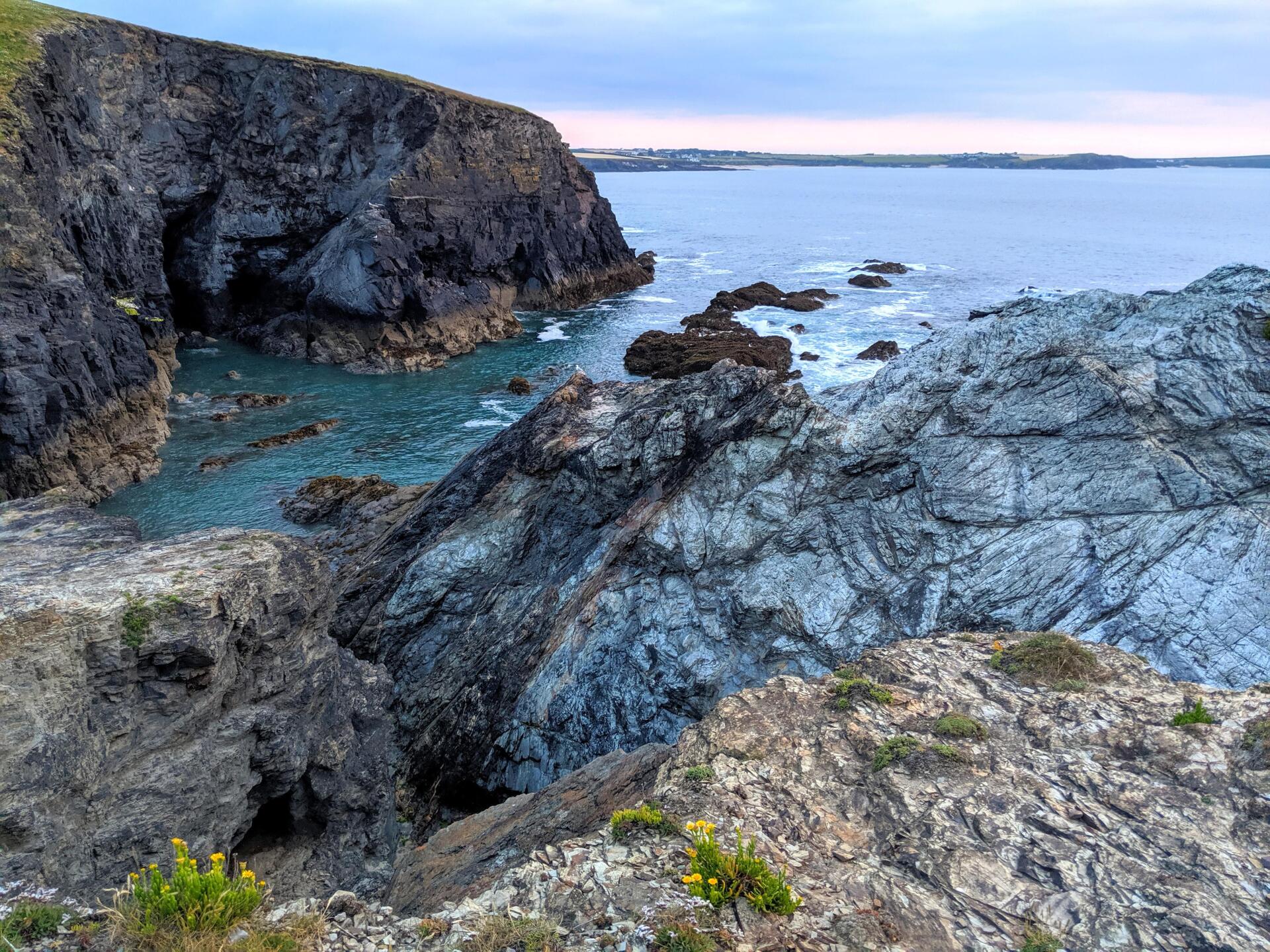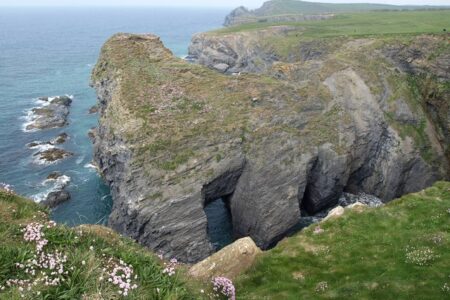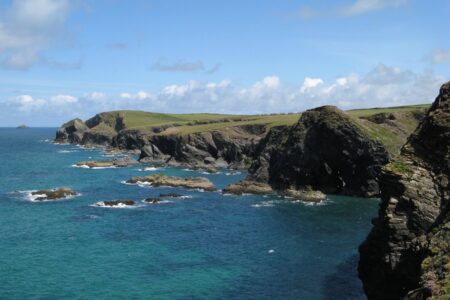In the spring of 1928 a young man called Cecil Morgan came to Cornwall to stay with his cousins at Hawker’s Cove near Padstow. The Cornish writer Donald Rawe, who was also a relation, subsequently told his story in Cornish Hauntings and Happenings in 1984 when Cecil was quite elderly. The memories of what had happened to him in Cornwall all those years ago had remained vivid for him for the rest of his life.
Hawkers Cove
The Hawker’s Cove that Cecil recalled is very similar to the scene any walker will find today. A remote hamlet with “one row of coastguard cottages and another for pilots who in the great days of sailing ships were called on to guide schooners and barques entering Padstow Harbour”. Cecil, who was nineteen years old at the time, took full advantage of the wonderful scenery that surrounded him, taking his cousins’ dog Susie on long walks along the clifftops. Cecil remembered visiting Pepper Hole, Butter Hole, Gunver Head and Tregudda Gorge, Porthmissen Bridge and Marble Cliffs before returning muddy and exhausted to the cottage. But one particular morning walk that April would stay with him forever because that was the day that Cecil says he heard the sirens.
It was about 7 o’clock and an early morning haze was just lifting off the water as Cecil marched with Susie towards Stepper Point. “Guillemots and puffins dived for food off the rocks, two hundred feet below the path he trod; gulls, terns and the occasional fulmar swerved and plummeted past him . . .” There was not a breath of air that day and Cecil said that the sea was like a mirror, barely moving, in a way that he found unaccountable strange. At some point he realised that Susie had become frozen to the spot, teeth bared, and would not move despite his best encouragement. And it was just then that he heard the voices.
The call of the sirens and the voices
According to Cecil he fell into a kind of trance and felt a desperate need to get closer where the singing was coming from. “They seemed to him tireless,” Donald Rawe recalled, “from another plane of existence . . . They were soft, undulating sighs rather than singing but sighs of melancholy invitation . . . possessing a power beyond the normal capacity of notes. They rose and fell, each wave more alluring, more fascinating and he knew he must go down and join them.”
Cecil tried to climb down into the gorge below him at Tregudda but Susie was still refusing to move and he told Donald he felt torn, not wanting to leave the dog. While he struggled with what to do the voices began to fade and quite suddenly he felt able to return to his walk. At first he told no one of his experience, worried about what people would think. But a few days later in Padstow he struck up a conversation with an elderly sea captain called Henry Crowle while sitting on the ‘Long Lugger’, a seat set back into the wall of the quayside. He told the captain what he had heard and rather than being met with derision the old man nodded and said simply that Tregudda was a place “to be avoided”, somewhere where your senses could be easily confused.
Cecil Morgan continued to return to Padstow each year and eventually retired there in 1972. Over the years he and Captain Crowle became firm friends and the old seadog admitted that he had believed Cecil’s story because as a boy he too had heard the voices at Tregudda. Crowle told Cecil that they must be the lucky ones, as they had both resisted the call of the sirens and lived to tell the tale.



